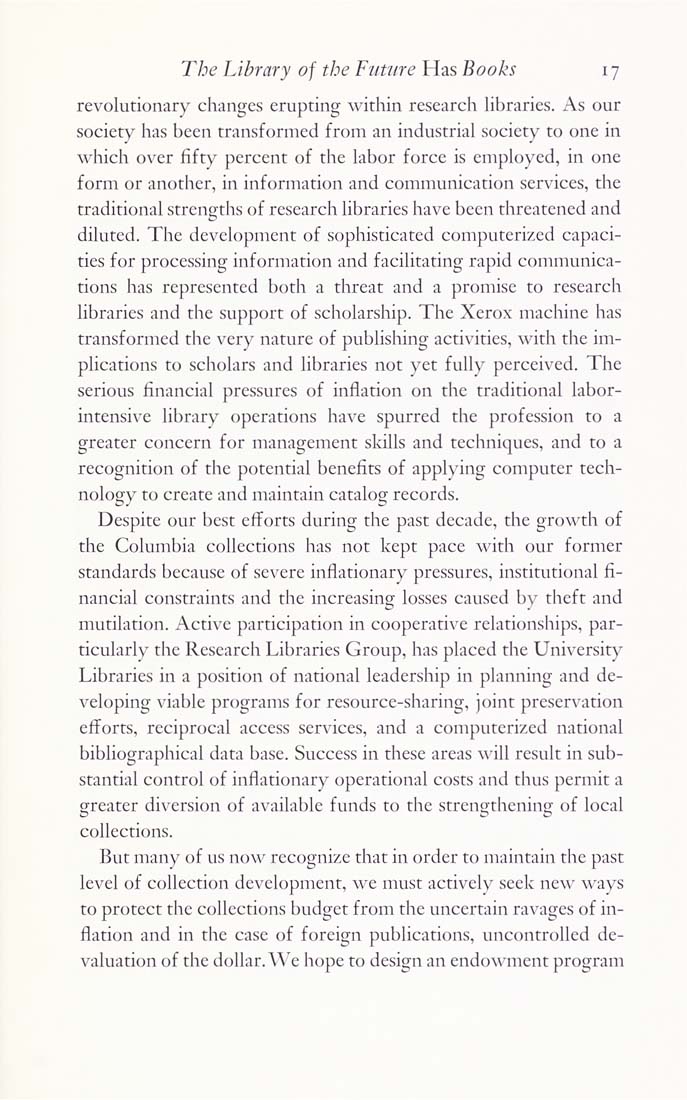Columbia Library columns (v.28(1978Nov-1979May))
(New York : Friends of the Columbia Libraries. )
|
||
|
|
|
|
| v.28,no.1(1978:Nov): Page 17 |

The Library of the Fntt/re Has Books 17 revolutionary changes erupting within research libraries. As our society has been transformed from an industrial society to one in which over fifty percent of the labor force is employed, in one form or another, in information and communication services, the traditional strengths of research libraries have been threatened and diluted. The development of sophisticated computerized capaci¬ ties for processing information and facilitating rapid communica¬ tions has represented both a threat and a promise to research libraries and the support of scholarship. The Xerox machine has transformed the very nature of publishing activities, with the im¬ plications to scholars and libraries not yet fully perceived. The serious financial pressures of inflation on the traditional labor- intensive library operations have spurred the profession to a greater concern for management skills and techniques, and to a recognition of the potential benefits of applying computer tech¬ nology to create and maintain catalog records. Despite our best efforts during the past decade, the growth of the Columbia collections has not kept pace with our former standards because of severe inflationary pressures, institutional fi¬ nancial constraints and the increasing losses caused by theft and mutilation. Active participation in cooperatix'c relationships, par¬ ticularly the Research Libraries Group, has placed the University Libraries in a position of national leadership in planning and de¬ veloping viable programs for resource-sharing, joint preservation efforts, reciprocal access services, and a computerized national bibliographical data base. Success in these areas will result in sub¬ stantial control of inflationaty operational costs and thus permit a greater diversion of available funds to the strengthening of local collections. But many of us now recognize that in order to maintain the past level of collection development, xx'e must actively seek new ways to protect the collections budget from the uncertain ravages of in¬ flation and in the case of foreign publications, uncontrolled de¬ valuation of the dollar. We hope to design an endowment program |
| v.28,no.1(1978:Nov): Page 17 |







